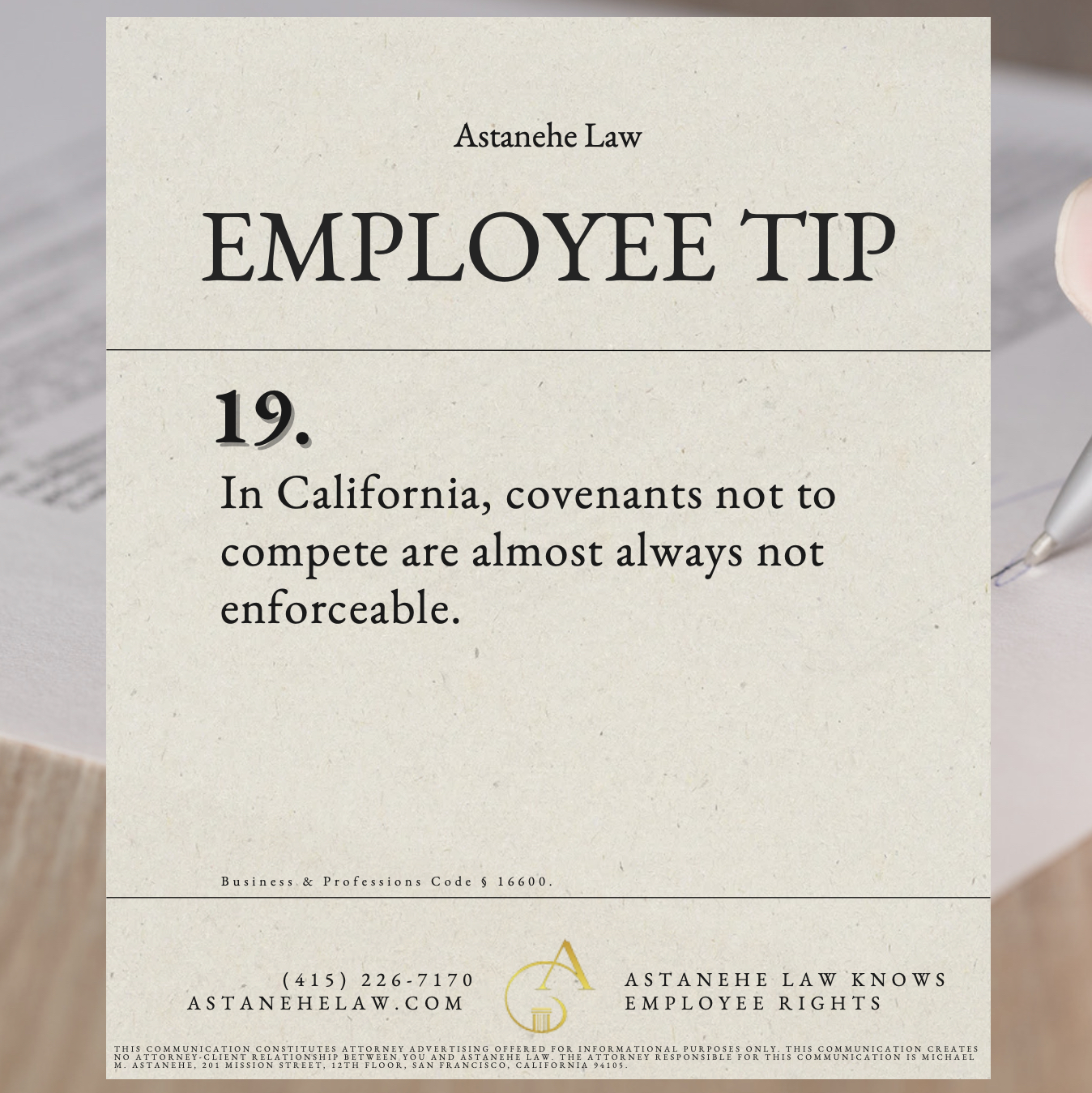California Requires Written Notice to California Workers that Noncompete Agreements are Void
After separating from employment, a California worker may desire to become employed elsewhere or, alternatively, open a business, performing the same or similar work. However, their former employer may wish to curtail the former worker’s efforts to protect their income. The employer may achieve this through a noncompete agreement. Or, they may previously have inserted such a clause in the California worker’s employment agreement, which the worker likely executed at the inception of the employment. A noncompete agreement prevents a California worker from working in a similar capacity as their current employer elsewhere. Noncompete agreements are not enforceable. California Business and Professions Code § 16600.1; Edwards v. Arthur Andersen LLP, 44 Cal. 4th 937 (2008). Predicated on mobility, California’s historically innovative ethos applies in the employment context. Recently, the State has taken steps to reify its commitment to this principle about notice and employment agreements.
On October 13, 2023, California Governor Gavin Newsom signed into law AB 1076, which amends California Business and Professions Code section 16600 and adds section 16600.1 to that same law. When it becomes effective in early 2024, AB 1076 will impact California workers in two (2) significant ways.
 First, California employers must notify California workers that noncompete clauses are invalid. Specifically, California workers with employment contracts containing a noncompete clause or who executed a separate noncompete agreement must receive written notification that the clause or agreement is avoided. California Business and Professions Code § 16600.1(b). They must receive the notice on or before February 14, 2024. Every worker employed on or after January 1, 2022, is entitled to notice, including workers that no longer maintain a relationship with the employer. The employer must deliver the written notice to the California worker’s last known address and email address. The new section protects California’s most vulnerable workers by increasing worker bargaining power, increasing job mobility, promoting labor market efficiency, increasing access to skills and training, and further fostering California’s culture of innovation and entrepreneurship.
First, California employers must notify California workers that noncompete clauses are invalid. Specifically, California workers with employment contracts containing a noncompete clause or who executed a separate noncompete agreement must receive written notification that the clause or agreement is avoided. California Business and Professions Code § 16600.1(b). They must receive the notice on or before February 14, 2024. Every worker employed on or after January 1, 2022, is entitled to notice, including workers that no longer maintain a relationship with the employer. The employer must deliver the written notice to the California worker’s last known address and email address. The new section protects California’s most vulnerable workers by increasing worker bargaining power, increasing job mobility, promoting labor market efficiency, increasing access to skills and training, and further fostering California’s culture of innovation and entrepreneurship.
Second, AB 1076 codifies existing law by broadly construing California noncompete doctrine. California Business and Professions Code § 16600(b). Further, AB 1076 covers contracts where the person subject to the noncompete agreement is not a contracting party. Id.
The law takes effect on January 1, 2024.
Relatedly, California passed SB 699 which which added section 16600.5 to the California Business and Professions Code, which also applies to covenants not to compete in California. Click here to read more about this related law.
To sue your employer or former employer for including a noncompete clause in your employment contract, forcing you to sign a separate noncompete agreement, and then impermissibly restraining you from working after separation, contact Astanehe Law today by email at contact@astanehelaw.com or phone at (415) 226-7170.




